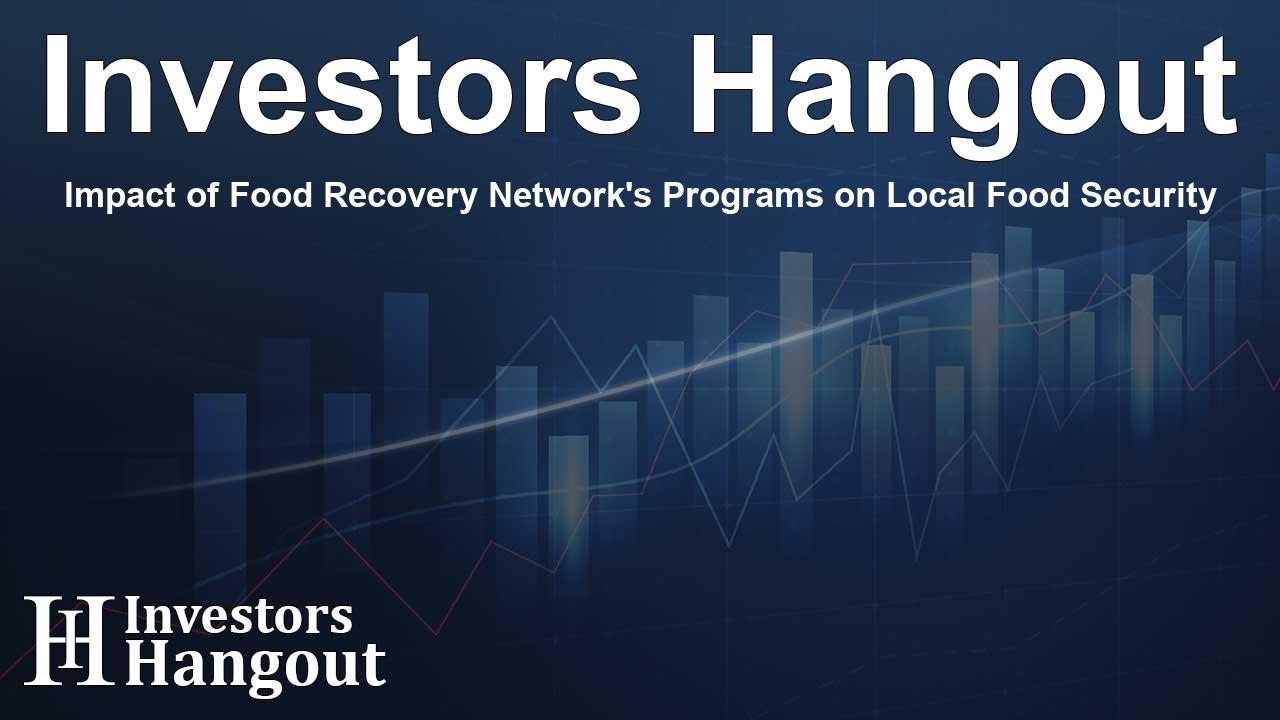Impact of Food Recovery Network's Programs on Local Food Security

Food Recovery Network's Impact on Community Food Security
The Food Recovery Network (FRN) has made impressive strides in addressing food waste and enhancing nourishment access in local communities. A notable success is the partnership with Central Lakes Community College, resulting in the delivery of over 58,000 pounds of recovering surplus food. This initiative is critical as it not only provides sustenance but also fosters a sense of community responsibility.
Significant Surplus Food Distribution
In its recent school year, Central Lakes Community College has successfully distributed more than 58,000 pounds of food, showcasing the power of community collaboration. As part of this initiative, FRN awarded several community colleges grants to further their food recovery efforts. The proactive approach signifies a vital step in reducing food waste and ensuring that surplus food reaches those in need.
The Role of Community Colleges
Regina Harmon, the Executive Director of FRN, highlighted the importance of establishing chapters in community colleges. Research illustrated that these institutions often serve regions with heightened food access issues and excess food waste. The successful partnership with Central Lakes Community College serves as an exemplary model that can inspire other colleges and universities across the nation.
Transformative Partnerships
Erich Heppner, Director of Student Life at Central Lakes College, expressed that working with FRN has transformed the local food landscape. Not only has the initiative mobilized high-quality fresh produce, but it has also engaged students in vital community service. This involvement empowers students, fostering an environment where they can actively contribute to resolving food insecurity.
Future Enhancements in Food Recovery Efforts
As the Food Recovery Network prepares for its second year of community college initiatives, Central Lakes Community College plans to kick off expanded efforts in the upcoming summer and fall periods. There is a palpable enthusiasm for the second national cohort by FRN as the application window is active, inviting community colleges to be part of this valuable movement.
Supporting Local Farmers and Communities
The FRN's initiative has also branched out to support local farmers while addressing community hunger. A recent program introduced in the St. Paul area has focused on distributing fresh surplus produce in Title I elementary schools, thereby aiding young children and families facing food scarcity.
National Leadership in Food Recovery
FRN's national produce distribution initiative is backed by noteworthy organizations, highlighting a collaborative effort to combat food waste and hunger consistently. By mobilizing volunteers and organizing food recovery events, FRN has brought together students, local businesses, and food providers in a dynamic way that benefits everyone involved.
Joining the Movement Against Hunger
Engagement with the Food Recovery Network opens avenues for individuals wishing to make a difference in their communities. Whether through volunteer work, educational outreach, or donations, there are many ways for community members to contribute to this growing movement. With continuous support, FRN aims to expand its programs, ultimately reaching more people enduring food insecurity.
Frequently Asked Questions
What is the Food Recovery Network?
The Food Recovery Network is a national nonprofit dedicated to mobilizing college students and communities to recover surplus food that would otherwise go to waste and donate it to those in need.
How much food has FRN recovered?
FRN has successfully recovered over 22.9 million pounds of food, translating into approximately 19 million meals provided to individuals experiencing hunger.
What initiatives does FRN undertake?
FRN operates various initiatives focused on food recovery, including partnerships with community colleges for surplus food distribution and supporting local farmers.
How can I get involved with FRN?
Individuals can join the Food Recovery Network by volunteering, donating, or participating in educational programs to help raise awareness about food insecurity and waste.
Where does FRN operate?
FRN's programs are present on nearly 200 college campuses and involve 100 food businesses across 46 states and Washington D.C.
About The Author
Contact Kelly Martin privately here. Or send an email with ATTN: Kelly Martin as the subject to contact@investorshangout.com.
About Investors Hangout
Investors Hangout is a leading online stock forum for financial discussion and learning, offering a wide range of free tools and resources. It draws in traders of all levels, who exchange market knowledge, investigate trading tactics, and keep an eye on industry developments in real time. Featuring financial articles, stock message boards, quotes, charts, company profiles, and live news updates. Through cooperative learning and a wealth of informational resources, it helps users from novices creating their first portfolios to experts honing their techniques. Join Investors Hangout today: https://investorshangout.com/
The content of this article is based on factual, publicly available information and does not represent legal, financial, or investment advice. Investors Hangout does not offer financial advice, and the author is not a licensed financial advisor. Consult a qualified advisor before making any financial or investment decisions based on this article. This article should not be considered advice to purchase, sell, or hold any securities or other investments. If any of the material provided here is inaccurate, please contact us for corrections.
